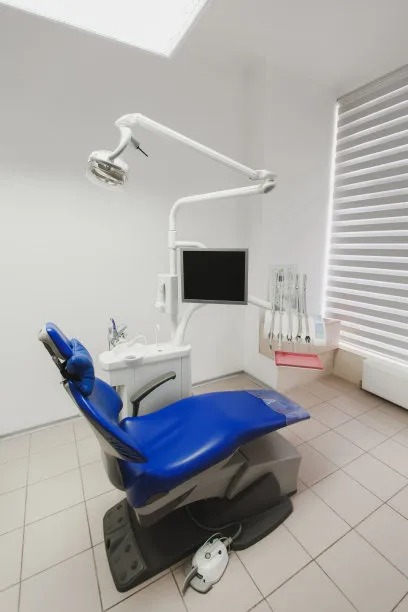Summary: Root canal treatment is a common procedure aimed at relieving pain and preserving natural teeth. However, several essential precautions should be taken to ensure optimal oral health safety before undergoing this treatment. This article outlines four critical areas to consider: understanding the procedure itself, selecting the right dentist, preparing for the treatment, and being aware of post-treatment care. By addressing these factors thoroughly, patients can minimize potential risks and enhance their overall experience during root canal treatment.
1. Understanding the Root Canal Procedure

Before deciding on a root canal treatment, its vital to understand what the procedure entails. A root canal is performed to remove infected or decayed pulp from the inner part of a tooth, followed by cleaning and sealing the space. Patients often experience apprehension due to misconceptions about pain associated with the treatment. However, modern techniques and anesthesia can significantly alleviate discomfort.
Take the time to ask your dentist questions about the procedure. Understanding the steps involved can help demystify the experience. Knowing how long the treatment will take, the tools that will be used, and what to expect in terms of sensations will prepare you mentally and physically.
Additionally, being well-informed about the success rates of root canal treatments reinforces the decision. Research indicates that over 90% of root canal procedures are successful, and understanding this statistic can provide reassurance to anxious patients.
2. Selecting the Right Dentist for the Procedure
Choosing the right dentist or endodontist is crucial for a successful root canal treatment. Credentials, experience, and patient reviews should all factor into your decision. Look for a dentist who specializes in endodontics, as they undergo additional training specifically for these procedures.
Its also helpful to schedule a consultation before the treatment day. Use this opportunity to assess the dentist’s communication style, level of professionalism, and willingness to address your concerns. A good dentist will take the time to ensure you feel comfortable with the procedure and will explain each step as it unfolds.
Furthermore, consider the dental facilitys technology and equipment. Advanced tools like digital imaging and rotary endodontic devices can enhance precision and improve outcomes, making it important to choose a practice that prioritizes modern techniques.
3. Preparing for the Root Canal Treatment
Proper preparation is vital for a smooth root canal procedure. Start by disclosing your full medical history and any medications you are taking. This information can help the dentist tailor the treatment to your specific needs and avoid potential complications.
Make arrangements for post-treatment care. It’s advisable to have someone accompany you to your appointment, as you may feel groggy after anesthesia. Discuss a plan for aftercare, including rest and dietary considerations, to promote optimal recovery.
Additionally, practicing good oral hygiene leading up to your appointment will not only enhance your overall health but also help reduce the risk of further infection. Brush and floss regularly, and consider using an antibacterial mouthwash for extra protection.
4. Post-Treatment Care and Recovery
Post-treatment care is essential to ensure the best possible recovery after a root canal. Be sure to follow the dentists aftercare instructions carefully. Pain management may be necessary, so be prepared with over-the-counter pain medications as recommended.
Monitoring for signs of complications is also crucial. Keep an eye out for excessive swelling, prolonged pain, or discharge, which could indicate an issue that requires further attention. Dont hesitate to contact your dentist if you have any concerns following the procedure.
Lastly, scheduling follow-up appointments is key to maintaining your oral health after a root canal. These check-ups allow your dentist to assess healing progress and address any lingering issues. Remember that ongoing dental care is critical to preserving the treated tooth and preventing future complications.
Summary: In conclusion, being well-informed and prepared is essential before undergoing a root canal treatment. Understanding the procedure, selecting a qualified dentist, properly preparing for the treatment, and adhering to post-treatment care guidelines can greatly influence your experience and success rate. Make your dental health a priority by following these essential precautions to ensure your safety and optimize your oral health.
This article is compiled by Vickong Dental and the content is for reference only.
Vickong Dental
Vickong Dental is a large medical group established in Hong Kong in 2008 by professors from well-known medical universities in Guangdong and Hong Kong, as well as medical doctors from key national '985' universities (including Master's supervisors and senior professors). The chain of branches brings together expert dentists with PhDs and Master's degrees from Hong Kong and Mainland China, committed to providing high-quality dental treatment.
"Vickong Dental Practices the University Motto of 'Healing and Serving Society,' with a Stable Operation for Sixteen Years. It Has Been honored with Hong Kong Enterprise Leaders's Choice,' and is a Global Trusted Implant Center for the Nobel Implant System. Recommended by Hong Kong Metro Broadcast and Guangdong Television, it Serves Customers from Over Thirty Countries and Regions, Gaining the Trust and Favor of Citizens from the Guangdong-Hong Kong-Macau Greater Bay Area and Surrounding Cities.

Thousands of customers' unanimous praise
The most recognized and highly recommended dental service by customers in the Guangdong-Hong Kong-Macau Greater Bay Area
We Ensure You Receive Detailed Care and Attention Here
Hong Kong standards, Shenzhen prices, Your Trusted English-speaking dentists

Vickong Dental Medical-Grade Instrument Disinfection Process
Vickong Dental Medical-Grade Instrument Disinfection Process

Vickong Dental Chain: A Warm and Comfortable Environment for Treatment






Appointment Hours

Q&A
Why choose Vickong Dental?
Vickong Dental practices the university motto 「Medicine to Benefit Society」, with each branch bringing together highly qualified dentists with doctoral and master’s degrees from Hong Kong and the Mainland, and has maintained seventeen years of steady operation。Recipient of 「2024 Hong Kong Enterprise Leaders Brand」, 「2025 Hong Kong Enterprise Leaders Brand」, a Nobel Biocare Global Trusted Implant Center, and a brand recommended by Metro Radio Hong Kong and Guangdong TV。
To date, we have served customers from more than thirty countries and regions,earning exceptionally high word-of-mouth recognition and trusted recommendations from residents across the Guangdong-Hong Kong-Macao Greater Bay Area and surrounding cities
We have eight major branches in Zhuhai、Shenzhen,and a consultation and service assurance center in Hong Kong,so you can book a free consultation at any time for any questions,which is very reassuring.
If I do not accept the quotation after the CT scan, will I be charged??
No! As long as the actual treatment has not started, you will not be charged any fees.
Will there be any additional charges during the treatment process?
No, there won’t be any additional charges. Before treatment begins, we will clearly explain the treatment plan and its corresponding fees. Only after the patient agrees and signs the consent form will we proceed with the dental service.
Can I pay in Hong Kong dollars?
Yes. Vickong Dental accepts payment in Hong Kong dollars. The amount will be converted based on the exchange rate of the day, and the applicable rate will be clearly communicated to you in advance.
Can I reschedule my appointment at any time?
Yes. Please contact us via **WeChat** or **WhatsApp** as early as possible, providing your original appointment time and details, along with your preferred new date and time slot for rescheduling.













